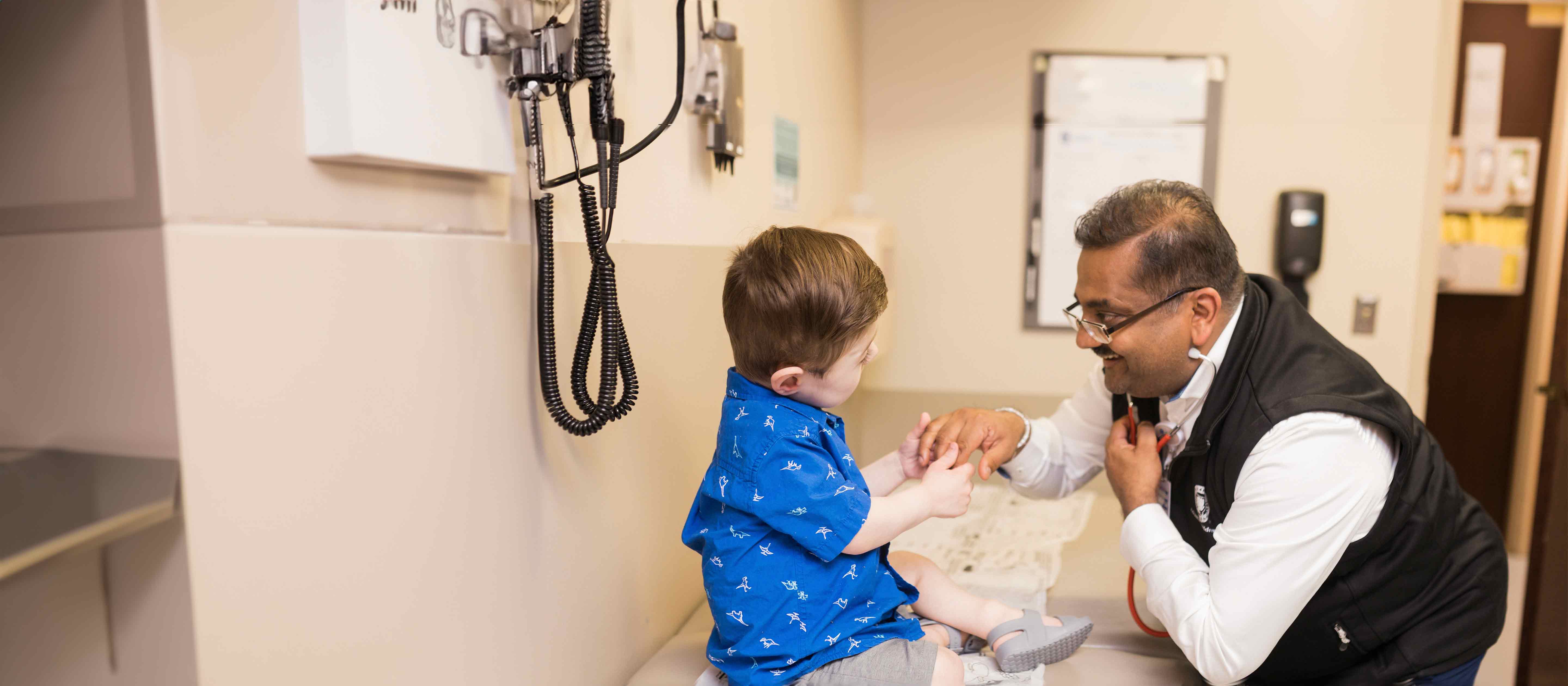A measles case was confirmed in Arkansas. Click here for more information >

Cystic fibrosis (CF) is a genetic disease affecting approximately 30,000 children and adults in the United States. Around 1,000 new cases of CF are diagnosed each year. CF occurs in one of every 3,200 live Caucasian births and in one of every 15,000 African-American births. CF is less common in Asians and Native Americans, but is being seen more often in Hispanics. More than 80 percent of patients are diagnosed by age three; however, almost 10 percent of new diagnoses are age 18 or older. About 3 % of patients with CF are diagnosed in adulthood.
In CF, mucus glands do not secrete normal, free-flowing fluid. Instead, a defective gene causes the body to produce abnormally thick, sticky mucus, which blocks ducts and other passageways in the body, particularly in the lungs and intestines interfering with vital functions such as breathing and digestion. In the lungs, these thick secretions clog airways leading to recurrent infections. Thick secretions also obstruct the pancreas, preventing digestion and absorption of fats and fat-soluble vitamins, leading to nutrition deficiencies and intestinal complications.
According to the CF Foundation's National Patient Registry, the median age of survival for a person with CF is 35 years. As more advances have been made in the treatment of CF, the number of patients with CF living into adulthood has steadily grown. Today, nearly 40 percent of the CF population is age 18 and older. Adults may experience additional health challenges including CF-related diabetes and osteoporosis.
Cystic Fibrosis is currently incurable. Ten years ago, the life expectancy of a person with CF was an average of 18 years. Advances in research and treatment have helped extend median survival to greater than 33 years. Early diagnosis, aggressive therapy, continued research, and routine check-ups are essential to patient health. With proper care, many patients with CF are living into adulthood and leading normal, productive lives.
The National Cystic Fibrosis Foundation recommends regular check-up’s at the CF center every month for children up to one year of age, then once every three months thereafter. These routine appointments are important to pick up changes or problems and provide treatment before irreversible damage occurs. People with CF who follow up with their physician routinely have better outcomes with longer survival. So, it is important for people with CF patient to keep appointments, even if they appear to be doing well.
At each pulmonary visit, a clinic nurse will check vital signs including height, weight, respiratory rate, heart rate, oxygen level, and blood pressure. If the patient is old enough, usually 5 and older, pulmonary function tests will be performed.. A sputum sample/culture will also be taken to see what’s growing in your child’s lungs. Your child will also see CF team members during their visit. Once a year your child will have an “Annual Review” (see FAQ’s)
You will be given a prescription for your child’s medicine, an updated list of medications for your child to show other healthcare providers, and a CF Action plan at each visit.
If you need to make, cancel or change an appointment, please contact the Appointment Center at 501-364-4000.
Please do not show up to the clinic if you do not have an appointment because we will not have the necessary medical records for the patient’s care. There are also days when we will not be in clinic and doctors will not be available to see a patient. If you do not have an appointment, you must call prior to coming to the clinic, and we will attempt to meet your needs as best we can.
If the need arises, patients with CF can be seen in the Emergency Room evenings, nights, weekends, or holidays. The main number to our hospital is 501-364-1100 if you need contact the pulmonary physician on call emergently.
Where can I find information on CF or CF Care?
The Cystic Fibrosis Foundation is the best resource for the most up to date information on CF and CF care. Information on care guidelines, where to find CF Care Centers, and the latest in CF research is available at www.cff.org.
Where can I find information on newborn screening?
More information can be found on the Arkansas Department of Health website.
Contact the Newborn Screening Coordinator at Arkansas Children's Hospital at 501-364-4050.
What is an Annual Review visit?
Annual Review is a more involved Pulmonary clinic appointment that happens once a year on the visit nearest the birthday.
The purpose is to evaluate all aspects of pulmonary care by meeting with the respiratory therapist, dietitian, and social worker.
Additional tests will be done including chest X-ray, blood work, sputum culture, and pulmonary function tests
How do I get medication refills?
Contact the Pulmonary Office at 501-364-1006. Allow 48 hours for refill requests.
How do I get test results?
Contact the Pulmonary Office at 501-364-1006 and ask to speak with a nurse for test results.
How can the Social Worker help me?
Manage your child's medical information and connect with your Arkansas Children's medical team anytime online!
Log in to MyChart